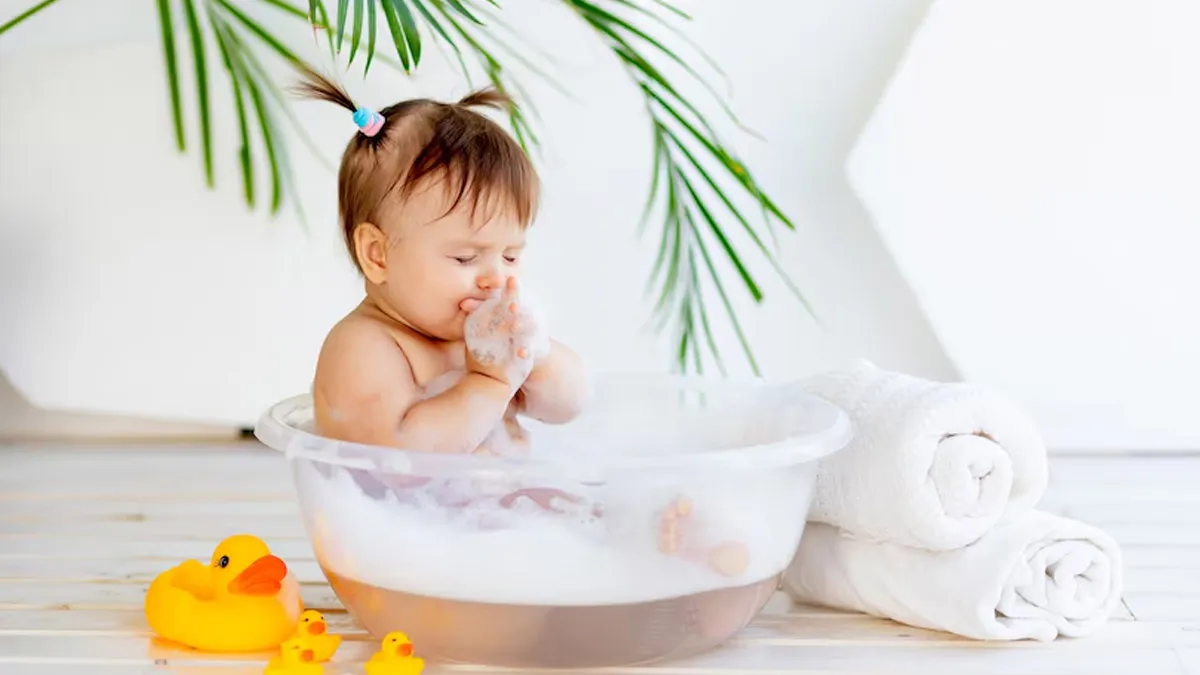
As the temperature drops, parents often find themselves pondering a common question, should babies be bathed daily during this chilly season? While bathing is a crucial part of a baby’s hygiene routine, winter’s harsh conditions bring challenges. From dry air to the risk of catching a chill, it’s natural to wonder if skipping a bath might actually be better for your little one.
Table of Content:-
Balancing cleanliness and comfort can feel like a tricky task, especially when your baby’s delicate skin is involved. To understand whether to bathe babies in winter and know tips on the same, OnlyMyHealth team interacted with Dr Gopal Agarwal, Clinical Director, Pediatrician and Neonatologist, Cloudnine Group of Hospitals, Gurugram.
Why Winter Bathing Concerns Parents
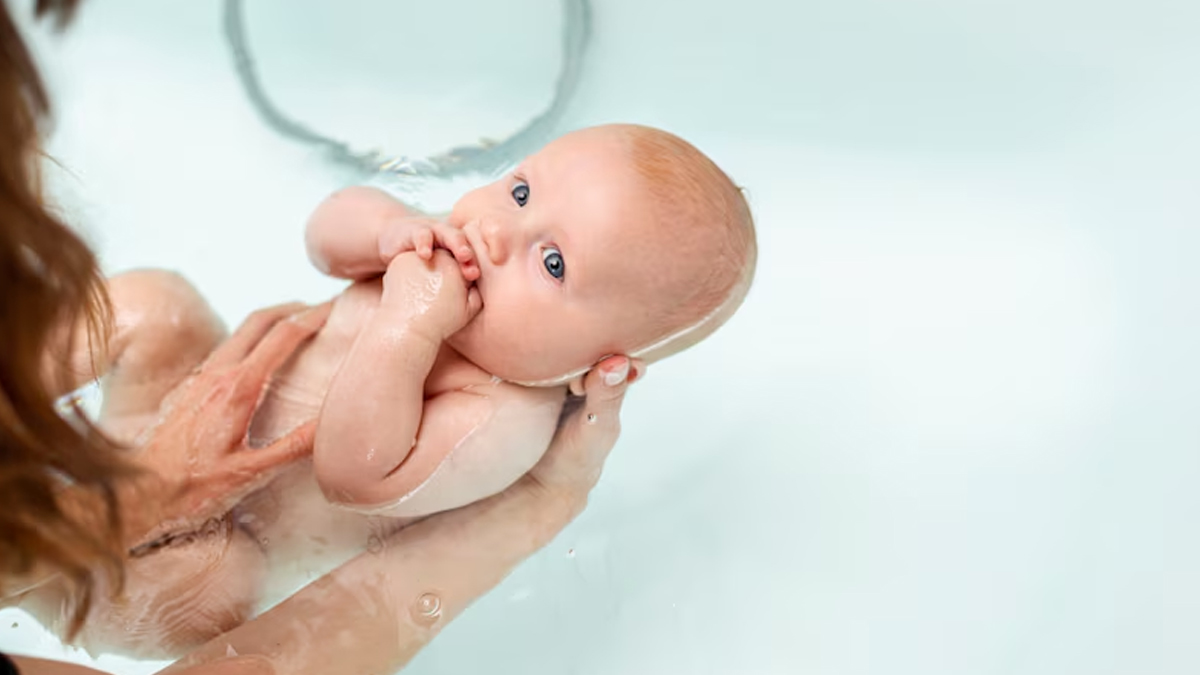
Skin Sensitivity
“Babies’ skin is delicate and prone to dryness, especially during winter when the air is dry, and indoor heating reduces humidity levels. Frequent bathing can strip the natural oils from their skin, exacerbating dryness and irritation,” shares Dr Agarwal.
According to studies, the loss of natural oils can lead to discomfort, redness, and in some cases, itchiness, making it essential to strike a balance in bathing frequency.
Low Sweat and Dirt Accumulation
During winter, babies sweat less and have minimal exposure to outdoor dirt. This naturally reduces the need for daily baths, as their skin stays relatively clean.
Risk of Hypothermia
“Babies are more sensitive to cold temperatures and lose body heat faster than adults,” notes Dr Agarwal. Bathing them daily without adequate precautions can increase the risk of chills or even hypothermia.
Also read: Why Is Your Baby Not Sleeping Through the Night? Hear From An Expert
Benefits of Bathing Babies in Winter
Despite the concerns, bathing still holds significance.
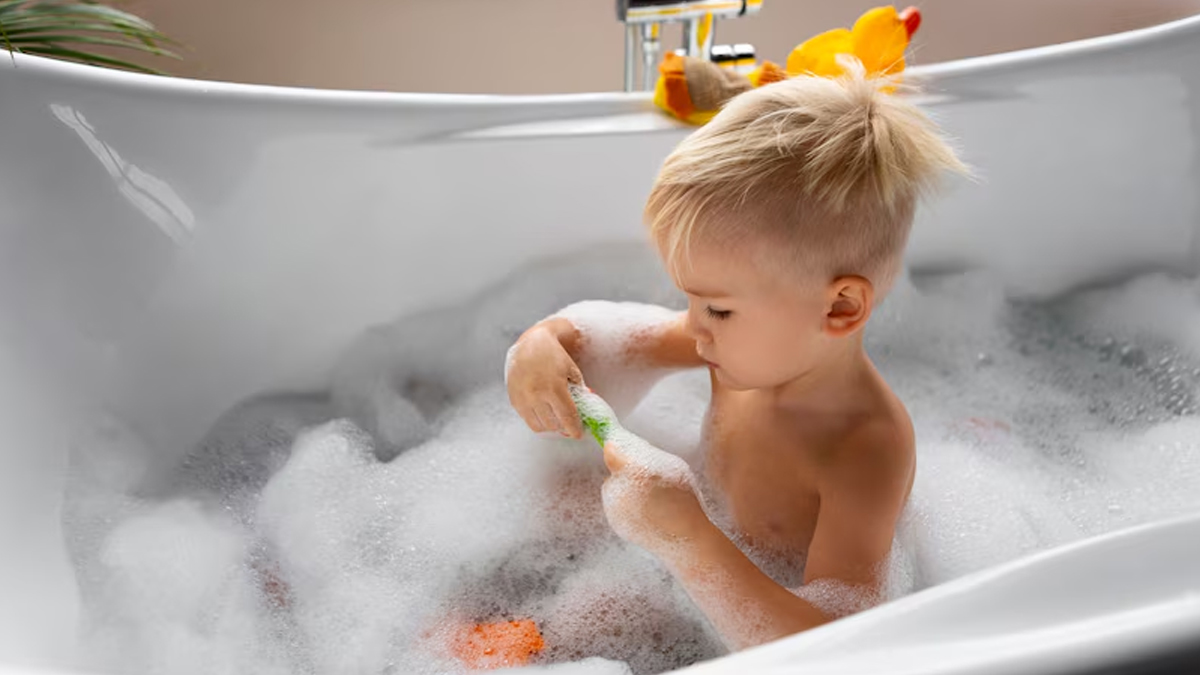
Hygiene and Comfort
Bathing helps maintain cleanliness, especially in moisture-prone areas like the diaper region, neck folds, and underarms. A warm bath can also soothe and relax a baby before bedtime.
Moisture Retention
Using lukewarm water and a gentle, moisturising soap ensures that the baby’s skin is cleansed without losing essential oils. Dr Agarwal advises, “Following up with a baby-safe moisturiser locks in hydration, protecting the skin from winter dryness.”
Bonding Time
Bathing is more than a hygiene routine. It is a moment of connection between parents and their baby. Gentle massages during the bath stimulate blood circulation, strengthen the parent-child bond, and promote relaxation.
How Often Should Babies Be Bathed in Winter?
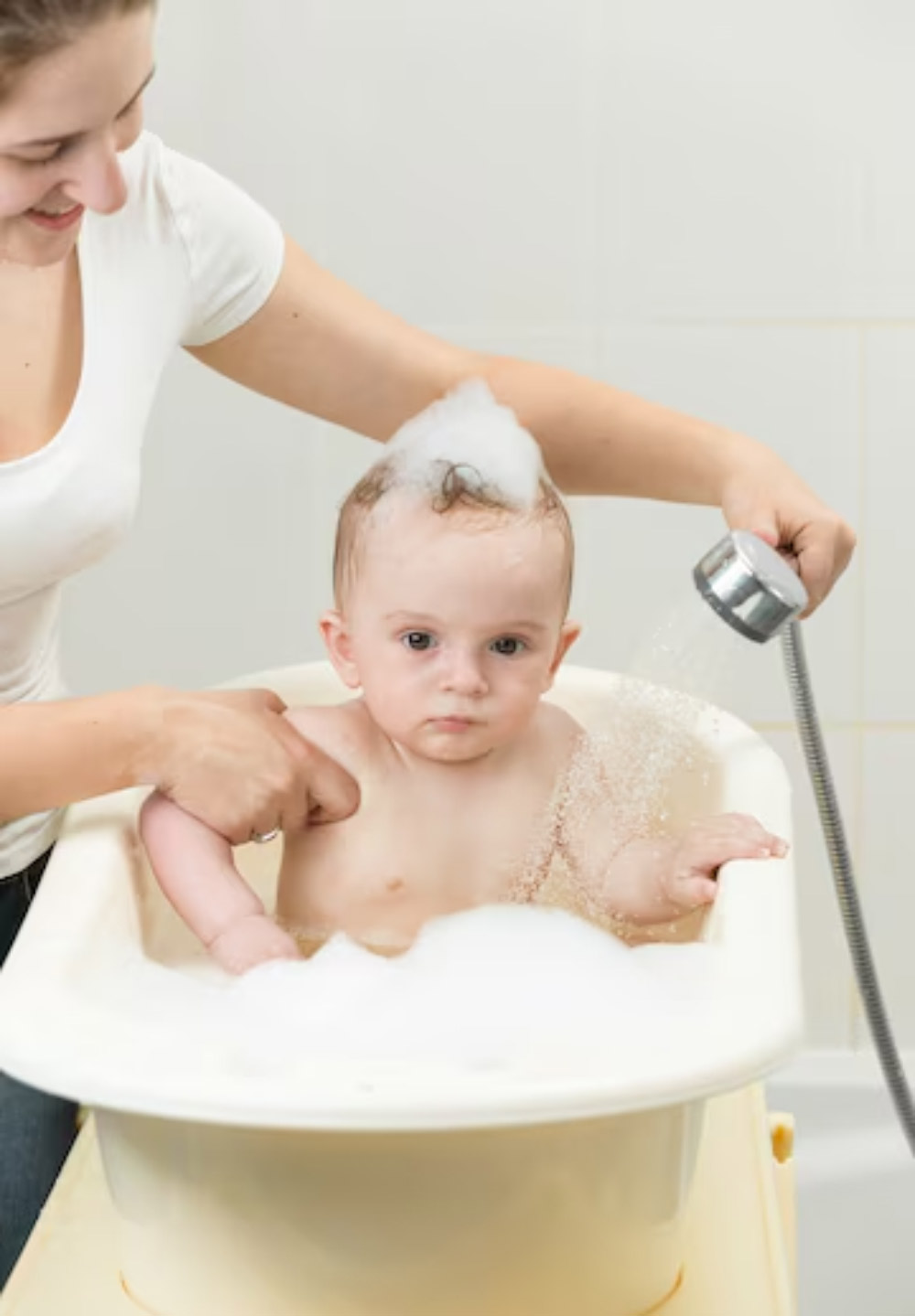
The frequency of bathing varies by age:
Newborns and Infants:
A full bath twice a week is sufficient, coupled with sponge baths on other days. Focus on cleaning the diaper area, hands, and face daily.
Toddlers (1 year and above):
Depending on activity levels, toddlers may need baths every other day or as required to remove sweat and dirt.
Also read: Baby Health: Side Effects Of Wearing The Same Diaper For Long In Infants
Best Practices for Bathing Babies in Winter
To ensure a safe and comfortable bathing experience Dr Agarwal recommended these tips:
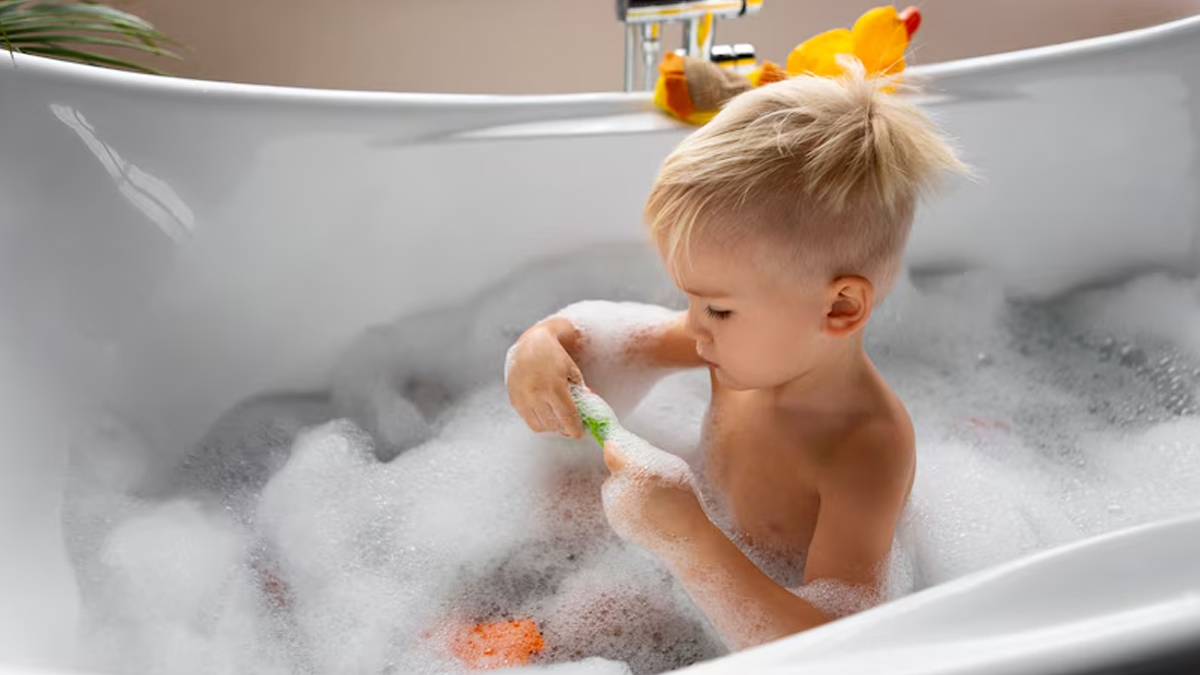
Choose the Right Time
Opt for mid-morning or early afternoon when the temperature is warmer. Avoid late evening or night baths.Prepare the Room
Warm the bathing area to a comfortable 24-27°C (75-80°F) and ensure it is free of cold drafts.Use Lukewarm Water
Maintain a water temperature of 37-38°C (98-100°F). Test the warmth on the inner wrist or elbow for accuracy.Limit Bath Time
Keep baths short, ideally under 15 minutes, to prevent the baby from feeling cold.Gentle Cleansing
Use mild, fragrance-free baby soaps and shampoos. Avoid harsh scrubbing; a soft washcloth or your hands work best.Moisturise Immediately
After drying the baby thoroughly, apply a baby-safe moisturiser or oil to lock in hydration. Focus on areas prone to dryness, such as cheeks and elbows.Dress Warmly
Ensure the baby is dressed in warm, breathable layers after the bath to retain body heat.
When to Avoid Daily Baths in Winter
Certain conditions warrant reduced bathing frequency:
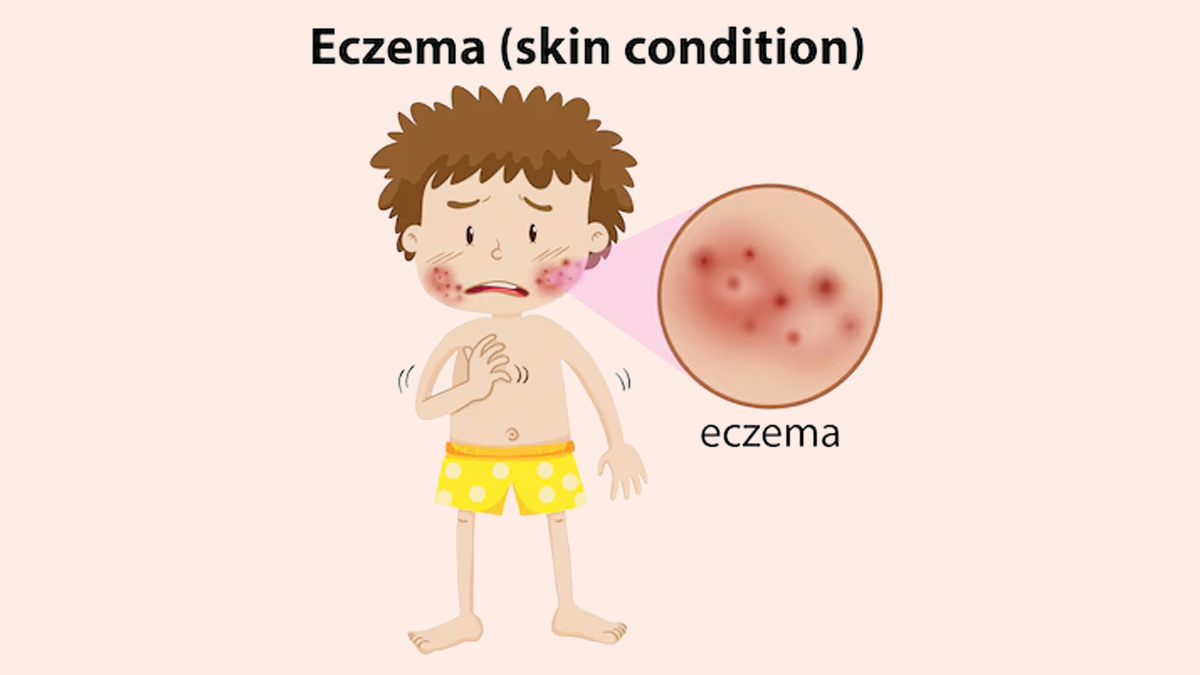
Dry or Eczema-Prone Skin:
Babies with sensitive skin may experience further irritation from frequent baths. In such cases, consult a paediatrician for tailored skincare advice.
Signs of Illness:
If the baby has a fever, cold, or other illnesses, opt for sponge baths instead of full baths to keep them comfortable without stressing their body.
Alternatives to Daily Bathing
When daily baths are not ideal, these alternatives help maintain hygiene:
- Sponge Baths: Clean the baby with a warm, damp cloth, focusing on areas prone to sweat and dirt, such as the neck, armpits, and diaper area.
- Gentle Cleaning: Wipe the baby’s face, hands, and feet daily to remove milk residue, drool, and dirt.
- Baby Wipes: Hypoallergenic, alcohol-free baby wipes are a convenient way to clean the skin without causing dryness.
Conclusion
"Bathing is an essential part of a baby’s hygiene and care routine," reiterates Dr Agarwal. However, it’s crucial to adapt this routine to the season, especially during winter. Following these guidelines ensures that your baby stays clean, comfortable, and safe, without compromising their skin health or overall well-being.
Also watch this video
How we keep this article up to date:
We work with experts and keep a close eye on the latest in health and wellness. Whenever there is a new research or helpful information, we update our articles with accurate and useful advice.
Current Version